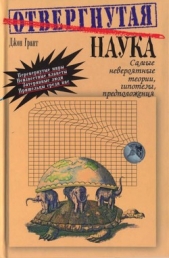Теории личности

Теории личности читать книгу онлайн
Монография — бестселлер видных американских исследователей Л. Хьелла и Д. Зиглера адресована всем, для кого знание и практическое применение психологии необходимы в профессиональной деятельности. Прочесть ее будет полезно психологам и врачам, преподавателям и студентам, а также широкому кругу читателей, интересующихся вопросами современной психологии личности, межличностными и семейными отношениями. Книга охватывает широкий круг направлений в теории личности, разработанных такими крупнейшими учеными, как Фрейд, Адлер, Юнг, Эриксон, Фромм, Хорни, Кеттел, Айзенк, Скиннер, Бандура, Роттер, Келли, Маслоу, Роджерс. Большинство этих теорий впервые в столь полном объеме представлены на русском языке.
Внимание! Книга может содержать контент только для совершеннолетних. Для несовершеннолетних чтение данного контента СТРОГО ЗАПРЕЩЕНО! Если в книге присутствует наличие пропаганды ЛГБТ и другого, запрещенного контента - просьба написать на почту [email protected] для удаления материала
D'Zurilla T. (1965). Recall efficiency and mediating cognitive events in «experimental repression». Journal of Personality and Social Psychology, 1, 253–257.
Edelson M. (1986). The convergence of psychoanalysis and neuroscience: Illusion and reality. Contemporary Psychoanalysis, 22, 479–519.
Ellenberger H. F. (1970). The discovery of the unconscious. New York: Basic Books.
Erdelyi M. H. (1985). Psychoanalysis: Freud's cognitive psychology. New York: Freeman.
Erdelyi M. H., Goldberg B. (1979). Let's not sweep repression under the rug: Toward a cognitive psychology of repression. In J. F. Kihlstrom, F. J. Evans (Eds.). Functional disorders of memory. Hillsdale, NJ: Erlbaum.
Fenichel O. (1945). The psychoanalytic theory of neurosis. New York: Norton.
Fisher С. В., Glenwick D. S., Blumenthal R. S. (1986). Subliminal oedipal stimuli and competitive performance: An investigation of between — groups effects and mediating subject variables. Journal of Abnormal Psychology, 95, 292–294.
Fisher S., Greenberg R. P. (1985). The scientific credibility of Freud's theories and therapy. New York: Columbia University Press.
Flavell J. (1955). Repression and the «return of the repressed.» Journal of Consulting Psychology, 19, 441–443.
Freud S. (1900/1953). The interpretation of dreams. In J. Strachey (Ed. & Trans.). The standard edition of the complete psychological works of Sigmund Freud (Vols. 4 and 5). London: Hogarth.
Freud S. (1901/1960). The psychopathology of everyday life. In Standard edition (Vol. 6). London: Hogarth.
Freud S. (1905a/1953). Three essays on sexuality. In Standard edition (Vol. 7). London: Hogarth.
Freud S. (1905b/1960). Jokes and their relation to the unconscious. In Standard edition (Vol. 8). London: Hogarth.
Freud S. (1915–1917/1943). A general introduction to psychoanalysis. New York: Doubleday.
Freud S. (1920a/1955). Introductory lectures on psychoanalysis. In Standard edition (Vol. 18). London: Hogarth.
Freud S. (1920b/1955). Beyond the pleasure principle. In Standard edition (Vol. 18). London: Hogarth.
Freud S. (1923/1961). The ego and the id. In Standard edition (Vol. 19). London: Hogarth.
Freud S. (1926/1959). Inhibitions, symptoms, and anxiety. In Standard edition (Vol. 20). London: Hogarth.
Freud S. (1927/1961). The future of an illusion. In Standard edition (Vol. 22). London: Hogarth.
Freud S. (1930/1961). Civilization and its discontents. In Standard edition (Vol. 21). London: Hogarth.
Freud S. (1933/1964). New introductory lectures on psychoanalysis. In Standard edition (Vol. 21). London: Hogarth.
Freud S. (1940/1964). An outline of psychoanalysis. In Standard edition (Vol. 23). London: Hogarth.
Geisler С. (1985). Repression: A psychoanalytic perspective revisited. Psychoanalysis and Contemporary Thought, 8, 253–298.
Geisler C. (1986). The use of subliminal psychodynamic activation in the study of repression. Journal of Personality and Social Psychology, 51, 844–851.
Gilligan C. A. (1982). In a different voice: Psychological theory and women's development. Cambridge, MA: Harvard University Press.
Golden G. K. (1987). Creativity: An object relations perspective. Clinical Social Work Journal, 15, 214–222.
Greenley J. R., Kepecs J. G., Henry W. E. (1981). Trends in urban American psychiatry: Practice in Chicago in 1962 and 1973. Social Psychiatry, 16, 123–128.
Grunbaum A. (1984). Foundations of psychoanalysis: A philosophical critique. Berkeley: University of California Press.
Hammer J. (1970). Preference for gender of child as a function of sex of adult respondents. Journal of Individual Psychology, 31, 54–56.
Hardaway R. A. (1990). Subliminally activated symbiotic fantasies: Facts and artifacts. Psychological Bulletin, 107, 177–195.
Haspel K. C., Harris R. S. (1982). Effect of tachistoscopic stimulation of subconscious oedipal wishes on competitive performance: A failure to replicate. Journal of Abnormal Psychology, 91, 437–443.
Heilbrun K. S. (1980). Silverman's psychodynamic activation: A failure to replicate. Journal of Abnormal Psychology, 89, 560–566.
Holmes D. S. (1974). Investigations of repression: Differential recall of material experimentally or naturally associated with ego threat. Psychological Bulletin, 81, 632–653.
Holmes D. S., Schallow J. (1969). Reduced recall after ego threat: Repression or response competition? Journal of Personality and Social Psychology, 13, 145–152.
Holt R. R. (1985). The current status of psychoanalytic theory. Psychoanalytic Psychology, 2, 289–315.
Isbister J. N. (1985). Freud: An introduction to his life and work. Cambridge, Eng: Polity Press.
Jersild A. (1931). Memory for the pleasant as compared with the unpleasant. Journal of Experimental Psychology, 14, 284–288.
Jones E. (1953). The life and work of Sigmund Freud. (Vol. 1, 1856–1900). The formative years and the great discoveries. New York: Basic Books.
Jones E. (1955). Years of maturity (Vol. II, 1901–1919). New York: Basic Books.
Jones E. (1957). The lust phase (Vol. III, 1919–1939). New York: Basic Books.
Kernberg O. F. (1976). Object relations theory and classical psychoanalysis. New York: Jason Aronson.
Kernberg O. F. (1986). Institutional problems of psychoanalytic education. Journal of the American Psychoanalitic Association, 34, 799–834.
Kline P. (1984). Psychology and Freudian theory. London: Methuen.
Lerman H. (1986). A mote in Freud's eye: From psychoanalysis to the psychology of women. New York: Springer.
Lewicki P., Hill T. (1987). Unconscious processes as explanations of behavior in cognitive, personality, and social psychology. Personality and Social Psychology Bulletin, 13, 355–362.
Luborsky L. (1984). Principles of psychoanalytic psychotherapy. New York: Basic Books.
Masling J. (1983). Empirical studies of psychoanalytic theories (Vol. 1). Hillsdale, NJ: Erlbaum.
Masling J. (1986). Empirical studies of psychoanalytic theories (Vol. 2). Hillsdale, NJ: Erlbaum.
Meltzer H. (1930). The present status of experimental studies of the relation of feeling to memory. Psychological Review, 37, 124–139.
Nuttin J. (1956). Human motivation and Freud's theory of energy discharge. Canadian Journal of Psychology, 10, 167–178.
Oliver J. M., Burkham R. (1982). Subliminal psychodynamic activation in depression: A failure to replicate. Journal of Abnormal Psychology, 91, 337–342.
Puner H. W. (1947). Freud: His life and his mind. New York: Dell.
Rosenzweig S. (1933). The recall of finished and unfinished tasks as affected by the purpose with which they were performed. Psychological Bulletin, 30, 698.
Rosenzweig S. (1941). Need — persistive and ego — defensive reactions to frustration as demonstrated by an experiment on repression. Psychological Review, 48, 347–349.
Sears R. R. (1936). Experimental studies of projection: I. Attribution of traits. Journal of Social Psychology, 7, 151–163.
Shevrin H. (1986). An argument for the evidential standing of psychoanalytic data. Behavioral and Brain Sciences, 9, 257–259.
Silverman L. H. (1976). Psychoanalytic theory: «The reports of my death are greatly exaggerated.» American Psychologist, 31, 621–637.
Silverman L. H. (1983). The subliminal psychodynamic activation method: Overview and comprehensive listing of studies. In J. Masling (Ed.). Empirical studies of psychoanalytic theories (Vol. 1, pp. 69–100). Hillsdale, NJ: Erlbaum.


























